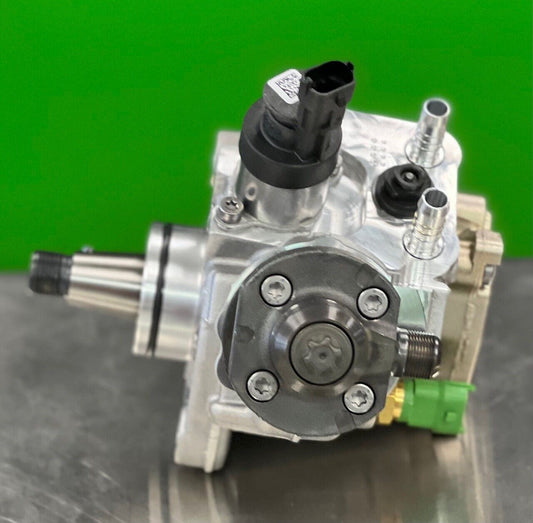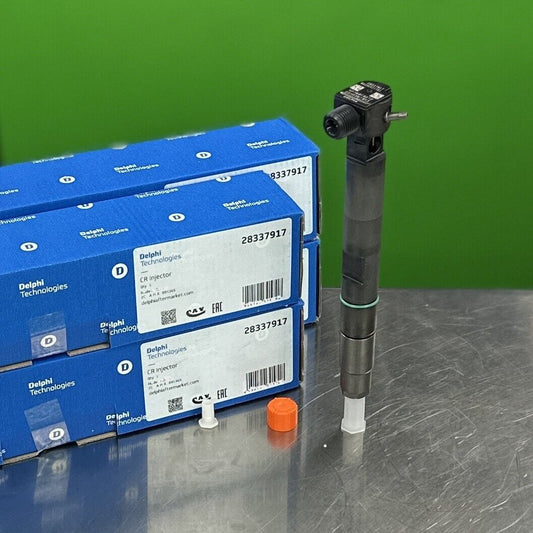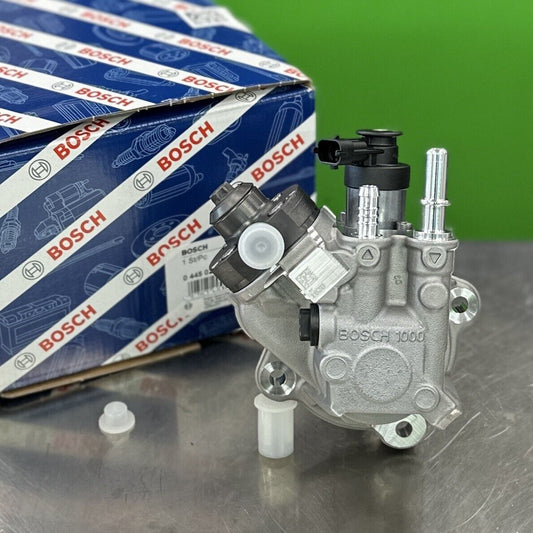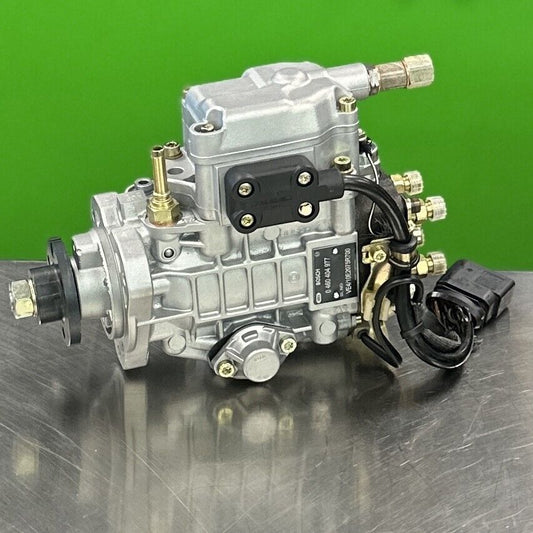Fuel Injector vs. Carburetor: Which is Better?
When it comes to the debate between fuel injectors and carburetors, the question of which is better sparks intense discussions among automotive enthusiasts and experts alike. Both fuel delivery systems have their unique characteristics and advantages, making it essential to delve deeper into their functionalities, maintenance requirements, cost implications, and environmental impacts to determine the superior option.
Starting with functionality, fuel injectors are known for their precise fuel delivery, ensuring optimal combustion efficiency and enhancing overall performance in terms of power output and fuel economy. On the other hand, carburetors have a simpler design but may lack the precision and efficiency of fuel injectors, potentially leading to lower power output and higher fuel consumption.
When it comes to maintenance, fuel injectors generally require less frequent tuning and cleaning compared to carburetors. Carburetors are more prone to issues such as clogging, wear and tear, which can affect their longevity and performance over time. This aspect highlights the importance of regular maintenance to ensure the proper functioning of both systems.
In terms of cost and installation, fuel injectors tend to have a higher initial purchase price and may require professional installation, leading to higher upfront expenses. However, fuel injectors are often more cost-effective in the long run due to their improved fuel efficiency and potential for performance upgrades. On the other hand, carburetors are generally more affordable initially but may incur higher maintenance costs over time.
Considering the environmental impact, fuel injectors are typically more eco-friendly due to their ability to control emissions more effectively and optimize fuel consumption. This aspect is crucial in today's automotive industry, where environmental regulations are becoming increasingly stringent, emphasizing the importance of choosing a fuel delivery system that aligns with modern environmental standards.
Functionality
When it comes to the functionality of fuel injectors versus carburetors, the differences are significant and can greatly impact the performance of a vehicle. Fuel injectors are known for their precise fuel delivery, ensuring the right amount of fuel is sprayed directly into the combustion chamber. This precision results in better combustion efficiency, leading to improved power output and fuel economy. On the other hand, carburetors rely on a more traditional method of mixing air and fuel before entering the engine, which may not be as efficient or accurate as fuel injection.
Imagine fuel injectors as skilled marksmen hitting the bullseye every time, while carburetors are more like a scattergun approach, spreading fuel across the target area. This analogy illustrates the difference in precision between the two systems. The direct injection of fuel by fuel injectors allows for better control over the fuel-air mixture, optimizing combustion for maximum power and efficiency.
In terms of overall performance, fuel injectors have the upper hand due to their ability to adapt to changing conditions and deliver the right amount of fuel at the right time. This dynamic responsiveness results in smoother engine operation, quicker throttle response, and improved drivability compared to carburetors, which may struggle to provide consistent performance across varying driving conditions.
Maintenance
When it comes to maintenance, the distinction between fuel injectors and carburetors becomes crucial. Fuel injectors are generally considered to be more low-maintenance compared to carburetors. The design of fuel injectors allows for a more precise delivery of fuel, reducing the likelihood of clogs and buildup that can affect performance. On the other hand, carburetors require regular tuning and cleaning to ensure optimal fuel-air mixture ratios.
One key advantage of fuel injectors in terms of maintenance is their ability to self-clean to some extent. The high-pressure fuel delivery system helps prevent deposits from forming inside the injector nozzles, leading to more consistent performance over time. In contrast, carburetors are prone to issues such as varnish buildup and debris accumulation, requiring frequent cleaning and adjustments.
Moreover, the longevity of fuel injectors is often superior to that of carburetors. The precision engineering of fuel injectors minimizes wear and tear on internal components, resulting in a longer lifespan. Carburetors, with their mechanical complexity and reliance on moving parts, are more susceptible to degradation and may need replacement or extensive repairs more frequently.
When it comes to troubleshooting, diagnosing problems with fuel injectors is usually more straightforward due to the electronic control systems involved. Modern vehicles equipped with fuel injectors often have onboard diagnostics that can pinpoint issues quickly, facilitating efficient repairs. Carburetors, being more mechanical in nature, may require more time and expertise to identify and resolve issues effectively.
In terms of cost-effectiveness, fuel injectors may initially seem more expensive to replace or repair compared to carburetors. However, considering the long-term savings in terms of fuel efficiency and performance, fuel injectors can prove to be a more cost-effective option. The reduced maintenance requirements and improved reliability of fuel injectors can lead to lower overall maintenance costs over the lifespan of a vehicle.
Cost and Installation
When it comes to the cost and installation aspects of fuel injectors versus carburetors, there are several factors to consider before making a decision. Let's break down the financial implications and installation processes of these two fuel delivery systems.
Cost: Initially, the purchase price of fuel injectors tends to be higher than that of carburetors. Fuel injectors are more complex and technologically advanced, leading to a higher upfront cost. However, in the long run, fuel injectors can offer cost savings due to their improved fuel efficiency and performance. On the other hand, carburetors are simpler in design and generally more affordable to purchase initially, but they may require more frequent maintenance and tuning, which can add up over time.
Installation: Installing fuel injectors can be a more intricate process compared to carburetors. Fuel injectors require precise calibration and tuning to ensure optimal performance, which may involve professional assistance or specialized tools. On the contrary, carburetors are relatively easier to install and tune, making them a more straightforward option for DIY enthusiasts or those looking for a simpler installation process.
When considering the overall cost and installation aspects, it's essential to weigh the upfront expenses, long-term savings, and ease of installation associated with fuel injectors and carburetors. Additionally, considering factors such as maintenance requirements and performance upgrades can further influence the decision-making process.
Environmental Impact
When it comes to the environmental impact of fuel injectors versus carburetors, there are significant factors to consider in terms of sustainability and eco-friendliness. Fuel injectors are known for their precise fuel delivery, which leads to more efficient combustion and reduced emissions. This precision helps modern vehicles meet stringent environmental regulations by controlling harmful pollutants released into the atmosphere.
In contrast, carburetors, while simpler in design, are less efficient in fuel consumption and emissions control. The carburetor's mechanism of mixing air and fuel can lead to incomplete combustion, resulting in higher levels of pollutants being emitted into the air. This inefficiency not only contributes to environmental pollution but also impacts the overall air quality and public health.
Moreover, fuel injectors have the advantage of adapting to various driving conditions, optimizing fuel consumption, and reducing greenhouse gas emissions. By precisely controlling the amount of fuel injected into the engine, fuel injectors can improve fuel efficiency, leading to lower carbon dioxide emissions and a smaller carbon footprint.
Furthermore, the environmental impact of fuel injectors extends to long-term sustainability. With proper maintenance and tuning, fuel injectors can operate efficiently for an extended period, reducing the need for frequent replacements and minimizing waste. This longevity contributes to a more sustainable automotive industry by promoting resource conservation and reducing the environmental footprint of vehicle manufacturing and disposal.
In conclusion, when considering the environmental impact of fuel injectors and carburetors, it is evident that fuel injectors offer a more eco-friendly solution for modern vehicles. With their precision, efficiency, and sustainability benefits, fuel injectors play a crucial role in reducing emissions, conserving resources, and promoting a greener automotive industry. Choosing fuel injectors over carburetors can lead to a cleaner environment and a more sustainable future for generations to come.
```htmlFrequently Asked Questions
-
1. What are the main differences between fuel injectors and carburetors?
Fuel injectors deliver fuel directly into the combustion chamber in a precise and controlled manner, while carburetors mix air and fuel in a chamber before entering the engine. Fuel injectors offer better fuel efficiency and performance due to their precise delivery, whereas carburetors are simpler in design but less efficient.
-
2. Which fuel delivery system is more environmentally friendly?
Fuel injectors are considered more eco-friendly compared to carburetors due to their ability to optimize fuel consumption and reduce emissions. Fuel injectors help in better compliance with modern environmental regulations by providing cleaner combustion and improved fuel efficiency.
-
3. Are fuel injectors more expensive to maintain than carburetors?
While fuel injectors may have a higher initial cost and require specialized cleaning and tuning, they tend to have lower long-term maintenance requirements compared to carburetors. Carburetors may need more frequent adjustments and are prone to issues like clogging and wear, leading to higher maintenance costs over time.
-
4. Can I upgrade my vehicle's carburetor to a fuel injection system?
Yes, it is possible to upgrade a carbureted vehicle to a fuel injection system, but it may involve significant modifications and costs. Upgrading to fuel injectors can improve engine performance, fuel efficiency, and overall reliability, making it a worthwhile investment for some vehicle owners.



